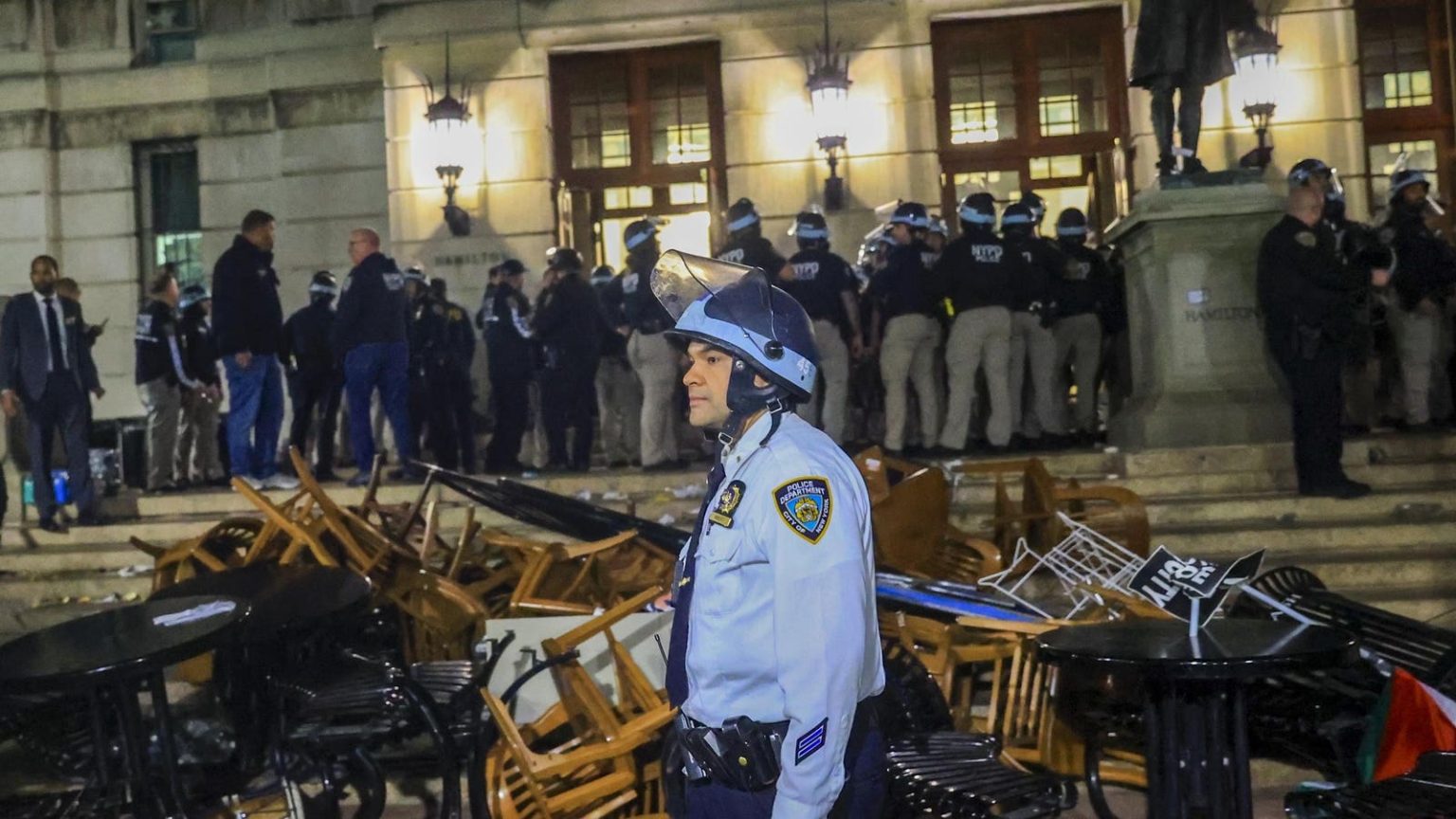Columbia University President Minouche Shafik addressed the recent protests on campus in a statement on Wednesday, expressing deep sadness over the events that led to mass arrests on Tuesday. The university decided to make all final exams remote instead of in-person due to safety concerns. Shafik described the protesters’ actions as a “drastic escalation” that pushed the university to the brink and created an intolerable level of safety risks for the community.
Despite the university president calling on the NYPD to clear out students from Hamilton Hall and dismantle the student encampment, Shafik apologized for reaching such a point. She denounced the students’ actions as destructive rather than political speech, stating that many students felt uncomfortable and unwelcome as a result of the protests and demonstrations. The school had been patient in tolerating unauthorized demonstrations for months and had engaged in negotiations with students urging divestment, but a resolution could not be reached.
Forbes reached out to Columbia University Apartheid Divest, the group organizing the encampment, for comment on the situation. Following the release of Shafik’s statement, Columbia University made the decision to move final exams on its main campus to a remote format, suggesting that finals for undergraduate students be made optional, have adjusted grading policies, or be canceled. This move was made due to ongoing safety concerns and disruptions caused by the protests.
In light of the recent events, Shafik emphasized the need to restore calm on campus and continue the dialogue on important issues such as the balance between free speech and discrimination, as well as the university’s role in contributing to better outcomes in the Middle East. The NYPD Chief of Patrol John Chell reported that approximately 109 people were arrested on Columbia’s campus on Tuesday night, although the exact number of students involved was not yet clear.
Students at Columbia University have been protesting the school’s investment in Israel and calling for complete divestment for about two weeks, culminating in the setting up of a tent encampment on April 17. Despite previous statements indicating a reluctance to involve the NYPD, the decision was made to call law enforcement in response to the actions of the protesters. The university distributed leaflets warning students to leave the encampment or face disciplinary action, leading to some students being suspended in order to ensure campus safety. Columbia University stated that the police intervention was a response to the protesters’ actions rather than the cause they were championing.


